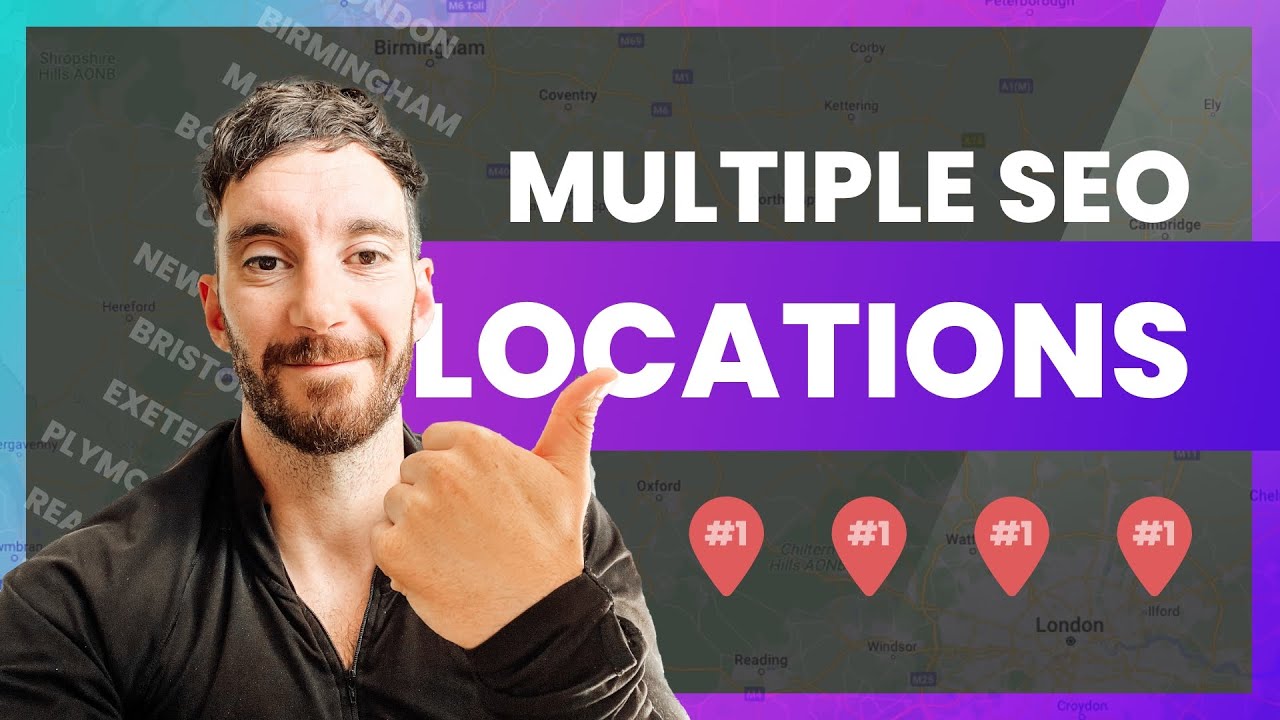In the vast online landscape, choosing a domain nameis a crucial step in establishing your digital presence. Along with the domain name itself, the domain extension plays a role in shaping your website's identity. However, many wonders, do domain extensions impact SEO(Search Engine Optimization)? Does opting for a specific domain extension affect your website's visibility in search engineresults? In this article, we will delve into the topic of domain extensions and their potential impact on SEO.
Understanding Domain Extensions

.Com, .Co, .Org, .Co.uk, .Net? Watch This Before Choosing Domain!
Domain extensions, also known as top-level domains (TLDs), are the letters that appear after the last dot in a domain name. They play a significant role in identifying the purpose, location, or type of organization associated with a website. Common domain extensions include .com, .org, .net, .edu, .gov, and country-specific extensions like .us or .uk. Here are a few key points to understand about domain extensions:
Purpose And Significance
Domain extensions provide a brief insight into the nature of a website. For instance, .com is widely used for commercial or businesswebsites, while .org is commonly associated with non-profit organizations. Different extensions serve specific purposes and help categorize websites accordingly.
Branding And Identity
The choice of a domain extension can contribute to brandingand identity. It is an opportunity to align the website's online presence with its purpose, industry, or target audience. A relevant and memorable domain extension can help users recognize and remember your website.
Generic And Specific Extensions
Some domain extensions are considered generic, meaning they are not tied to a specific industry or purpose. Examples include .com, .net, and .org. On the other hand, specific extensions, such as .techor .photography, cater to particular sectors or interests. These extensions can help create a niche identity and attract a targeted audience.
Country-Specific Extensions
Country-specific domain extensions indicate the geographic location associated with a website. They are especially useful for businesses or organizations targeting a specific country or region. Examples include .us for the United States, .uk for the United Kingdom, or .ca for Canada. Country-specific extensions can assist in local SEOefforts.
New And Specialized Extensions
In recent years, new domain extensions have emerged, offering more options for website owners. These extensions can be related to industries, interests, or communities, such as .blog, .photography, or .store. While they provide an opportunity for creative branding, their impact on SEOis similar to traditional domain extensions.
Understanding domain extensions is crucial for choosing the right one that aligns with your website's purpose, branding, and target audience. While domain extensions themselves do not directly impact SEO, they can indirectly influence user perception, local targeting, and brand recognition, which in turn may impact SEO factors like click-through rates and user engagement.
Do Domain Extensions Impact SEO?

Do Domain Name TLDs Affect SEO?
The Perception Factor
When it comes to domain extensions and SEO, one aspect that often comes into play is the perception factor. The domain extension you choose can influence how users perceive your website and impact their decision to click on your link in search engine results. While search engines like Google do not consider domain extensions as a direct ranking factor, user behavior and engagement can indirectly affect SEO. Here are some key points to consider regarding the perception factor and domain extensions:
- User Trust and Familiarity- Certain domain extensions, such as .com, .org, and .net, have been around for a long time and are widely recognized by users. They have gained a level of trust and familiarity, which can positively influence user perception. Users may be more inclined to click on a .com website, assuming it to be more reputable or trustworthy.
- Brand Association- Domain extensions can contribute to the brand association and alignment. For example, if you have a non-profit organization, using a .org extension can help communicate your mission and purpose clearly. It gives users an immediate understanding of your website's nature, enhancing the overall brand perception.
- User Experienceand Click-Through Rates- When users encounter search results, the domain extension can impact their decision to click on a particular link. If they perceive the domain extension as relevant or authoritative, they are more likely to click on it. Higher click-through rates (CTRs) can indirectly benefit SEO, as search engines consider CTR as an indicator of a website's relevance and user satisfaction.
- Industry-Specific Extensions- Some domain extensions are tailored to specific industries or sectors, such as .tech, .edu, or .gov. By using these specialized extensions, you can signal to users that your website is specifically focused on a particular field. This can attract a targeted audience and enhance the perception of expertise and credibility.
- Local Relevance - For businesses targeting a specific country or region, using a country-specific domain extension can enhance local relevance and trust. Users often associate their country's domain extension, such as .us or .uk, with local businesses or organizations. This can lead to increased user engagement and improved SEO performance in local search results.
While the perception factor can influence user behavior and indirectly impact SEO, it's important to note that search engines prioritize factors like contentquality, relevance, and user experience when determining search rankings. Ultimately, providing valuable content, optimizing your website, and ensuring a positive user experience should be the primary focus for SEO success. The domain extension should be chosen strategically to align with your brand and target audience, enhancing user perception and potentially improving click-through rates.
Local SEO And Country-Specific Extensions

How to Rank for Multiple Locations in Google SEO
In the realm of search engine optimization (SEO), targeting a specific geographic location is often crucial for businesses or organizations. Local SEO aims to optimize a website's visibility and rankings for location-based search queries. One effective strategy in local SEO is the use of country-specific domain extensions. Here's a closer look at the relationship between local SEO and country-specific extensions:
- Geographical Relevance - Using a country-specific domain extension, such as .us for the United States or .uk for the United Kingdom, can help search engines understand the geographic relevance of your website. When users search for location-specific queries, search engines may prioritize websites with country-specific extensions, improving their visibility in local search results.
- Targeting Local Audience - Country-specific domain extensions can enhance your website's credibility and trust among users in a particular country. People often prefer to engage with websites that have a domain extension matching their own country because it creates a sense of local connection and relevance. This can lead to higher user engagement and increased trust, which can positively impact SEO.
- Local Citationsand Backlinks- Country-specific domain extensions can facilitate the acquisition of local citations and backlinks. Websites with the same country-specific extension are more likely to link to each other within their respective local networks. This can help improve your website's authority and local relevance, which in turn can positively influence SEO rankings.
- Enhanced Local Visibility- When users search for local businesses or services, search engines often display results based on the user's location. By using a country-specific domain extension, your website has a higher chance of appearing in location-based search results. This improves your visibility to local users who are more likely to convert into customers or clients.
- Trust and User Perception- Country-specific domain extensions can instill a sense of trust and credibility among users searching for local information or services. Users are more inclined to click on a website with a country-specific extension, as it gives them confidence that the website caters to their specific location and needs. This positive user perception can indirectly impact SEO by increasing click-through rates and engagement.
While country-specific domain extensions can be beneficial for local SEO, it's important to remember that they are just one element of a comprehensive local SEO strategy. It's equally important to optimize other SEO factors such as local keywords, on-page optimization, local listings, and user reviews to improve your website's visibility in local search results.
Choosing a country-specific domain extension should align with your target audience and businessgoals. It can contribute to local SEO efforts by improving geographical relevance, user trust, and local visibility, ultimately driving more organic traffic and potential customers to your website.
New Domain Extensions And SEO
With the expansion of the domain name system, new domain extensions have emerged, offering website owners more options for their online presence. These new domain extensions, also known as generic top-level domains (gTLDs), can include industry-specific, location-based, or interest-focused extensions. While the impact of these new domain extensions on SEO is often a subject of debate, here are some key points to consider:
- Relevance and Branding- New domain extensions allow businesses to choose a domain name that aligns more closely with their industry or niche. For example, a photography business can opt for a .photography extension. This relevance can enhance user perception and branding, potentially leading to better click-through rates and engagement.
- Memorability and Differentiation- Unique domain extensions can make your website more memorable and distinct from others. With traditional domain extensions like .com being saturated, new domain extensions offer an opportunity to stand out and create a distinctive online identity. This can help users remember your website and increase brand recognition.
- User Trust and Perception- While some users may be unfamiliar with new domain extensions, others may perceive them as innovative or specific to a particular industry or community. User perception can play a role in click-through rates and engagement, indirectly influencing SEO. Building trust through content quality and user experience remains paramount, regardless of the domain extension.
- SEO Neutrality- Search engines like Google have stated that they treat new domain extensions the same as traditional ones in terms of SEO. From a technical standpoint, new domain extensions are not inherently favored or penalized in search rankings. SEO success still relies on factors such as content relevance, quality, and backlink authority.
- Limited Impact on Rankings- While new domain extensions may not directly impact search engine rankings, they can indirectly influence SEO through user behavior. If a unique domain extension catches users' attention and encourages them to click on your website, it can potentially increase organic traffic and improve SEO performance over time.
Key SEO Considerations

5 Key SEO Tips That Can Make a Huge Difference in Discoverability
When it comes to optimizing your website for search engines, several key considerations should be taken into account. While domain extensions themselves may not directly impact SEO rankings, implementing proper SEO practices is crucial for improving your website's visibility and organic traffic. Here are some key SEO considerations to keep in mind:
- Relevant and Quality Content- Creating high-quality, relevant, and informative content is essential for SEO success. Search engines prioritize websites that provide valuable information to users. Focus on producing unique and engaging content that satisfies users' search intent, incorporates relevant keywords, and encourages user engagement.
- On-Page Optimization- Optimizing your web pages is critical for search engine visibility. Pay attention to elements such as meta tags (title tags, meta descriptions), headings, URL structure, and keyword placement. Ensure that your website is easily crawlable by search engine bots and that your content is properly formatted for readability.
- User Experience and Site Performance - A positive user experience is important for both users and search engines. Optimize your website's load speed, ensure mobile responsiveness, and improve overall site performance. User-friendly navigation, clear calls-to-action, and easy accessibility contribute to a positive user experience, which can indirectly impact SEO.
- Backlinks and Authority- Earning high-quality backlinks from reputable and authoritative websites is crucial for SEO. Focus on creating valuable and shareable content that naturally attracts backlinks. Building relationships with other websites, guest blogging, and participating in industry-specific communities can help establish your website's authority and improve search engine rankings.
- Local SEO Optimization- For businesses targeting specific geographic locations, optimizing for local SEO is essential. Ensure that your website includes accurate and consistent business information (name, address, phone number) across all online directories and platforms. Utilize location-specific keywords, create localized content, and encourage user reviews to enhance your local search visibility.
- Technical SEO- Technical aspects of your website play a vital role in SEO. Ensure proper indexing of your website's pages, set up XML sitemaps, and use structured data markup to provide additional context to search engines. Regularly monitor and fix any technical issues like broken links, duplicate content, or crawl errors that may hinder your website's performance.
- User Engagement and Social Signals- User engagement metrics, such as click-through rates, time spent on a page, and social mediashares, indirectly impact SEO. Engage your audience through compelling headlines, engaging content, and a strong social media presence. Encourage social sharing and participation, as these signals can improve your website's visibility and potentially influence search rankings.
Remember that SEO is an ongoing process that requires continuous monitoring, analysis, and adaptation. While domain extensions may have indirect influences on user perception and local SEO, focusing on these key SEO considerations will have a more significant impact on your website's visibility, organic traffic, and search engine rankings.
People Also Ask
Are Certain Domain Extensions Better For SEO Than Others?
Search engines like Google do not favor any specific domain extension over others. Relevance, quality content, and user experience are key factors for SEO success.
Will Using A Country-specific Domain Extension Improve Local SEO?
Using a country-specific domain extension can enhance your website's local credibility and help it rank higher in local search results for relevant queries.
Should I Prioritize The Perception Of Domain Extensions For SEO Purposes?
While user perception can influence click-through rates, it is not a direct ranking factor for search engines. Focus on creating relevant content and providing a positive user experience for better SEO results.
Can Using A Specific Domain Extension Help With International SEO?
While domain extensions alone do not directly impact international SEO, country-specific extensions like .fr (France) or .de (Germany) can signal to search engines that your website is targeting a specific country or region. However, proper localization efforts, including language targeting, hreflang tags, and local content, are essential for successful international SEO.
Do Hyphens In Domain Extensions Affect SEO?
Hyphens are not typically used in domain extensions. Domain extensions come after the last dot in a domain name, such as .com or .org. Hyphens are commonly used within the domain name itself but not in the extension. Hyphens within the domain name can impact SEO, as they can make the domain less memorable and potentially create confusion.
Conclusion
In the ever-evolving realm of SEO, the impact of domain extensions remains a subject of debate. While there is no direct correlation between domain extensions and search engine rankings, certain factors surrounding domain extensions can influence SEO indirectly.
The primary focus for SEO success should lie in creating high-quality content, providing an excellent user experience, and adhering to SEO best practices. While the domain extension may contribute to user perception and local SEO, it is just one piece of the larger SEO puzzle.
